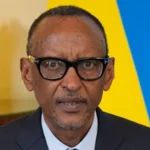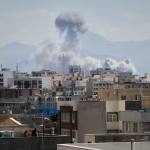In recent months, the Uganda People’s Defense Forces (UPDF) have introduced a new slogan that has garnered significant attention: “God will judge our enemies, we shall arrange the meeting.” This slogan, articulated by Muhoozi Kainerugaba, the son of President Yoweri Museveni and a prominent figure within the UPDF, has stirred a mix of admiration and concern among the public and political analysts alike. But what does this slogan mean in the context of contemporary Ugandan politics, and what implications does it hold for the nation’s future?
Contextualizing the Slogan
Muhoozi Kainerugaba, a lieutenant general in the UPDF, has long been seen as a potential successor to his father, marking him as a central figure in Uganda’s political landscape. His recent pronouncement reflects a blend of military bravado and a deeply ingrained religious sentiment that characterizes much of Uganda’s social fabric. The slogan hints at a significant military ambition and can be interpreted as a rallying cry for unity within the ranks of the UPDF, suggesting that they view themselves as both protectors of the nation and instruments of divine justice.
A Historical Lens
Understanding the implications of such a slogan requires a look at Uganda’s historical context. Uganda has experienced turbulence through decades of political strife, military coups, and civil wars. The UPDF itself was born out of struggle, originating from the National Resistance Army (NRA) that fought against the regime of Milton Obote in the 1980s. Over the years, the UPDF has evolved into a powerful institution within Uganda, often exercising significant influence over political affairs.
The rhetoric surrounding this new slogan may evoke the past when military force was often seen as a legitimate means to address political and social challenges. For some, it reinforces the perception that the military is prepared to take decisive, possibly aggressive action against perceived threats—be they domestic or external.
Mixed Reactions
The slogan has met with a polarized reception. Supporters view it as a profound declaration of strength, resonating with many Ugandans’ faith in divine oversight. In a country where religion plays a significant role in daily life, invoking God’s judgment may enhance the UPDF’s legitimacy in the eyes of many citizens who value strong leadership.
Conversely, critics argue that such militaristic rhetoric may deepen existing fears of authoritarianism. Reports of human rights abuses and government suppression of dissent have marred the UPDF’s image, and slogans reinforcing military might can fuel apprehension about the military’s role in governance. The implication that enemies will be “judged” might also be perceived as a veiled threat, suggesting that dissent or opposition to the government will not be tolerated.
Domestic and International Implications
The introduction of this slogan does not exist in a vacuum. Uganda’s relationships with neighboring countries and the international community are at stake. Western nations, often critical of governmental oppression and human rights abuses, may respond negatively to perceived threats of military action backed by divine sanction. Ethiopia’s recent conflicts, for example, underscore how militaristic posturing can have broader geopolitical consequences.
Internally, the slogan may sway public opinion, but it is essential to keep in mind the different demographics within Uganda. The youth, who make up a large portion of the electorate and are increasingly vocal about their desire for change, may not align with this type of militaristic nationalism.
Conclusion
The slogan “God will judge our enemies, we shall arrange the meeting” is a striking reflection of Uganda’s complex political dynamic. While it encapsulates a sense of strength and unity within the UPDF, it also raises essential questions about the future of governance, democracy, and human rights in Uganda. As the nation moves forward, the impact of this slogan will undoubtedly shape discussions around the role of the military in politics and the aspirations of a youthful electorate yearning for change. Whether this slogan will prove to be a unifying force or a divisive one remains to be seen.
Email Us on editorial@nnafrica.com













